My grandparents, Mike and Carol Kaelin. They’re wearing masks and keeping their distance, a necessary precaution during Covid. (Photo courtesy of Sydney Kaelin)
Over six months into the pandemic, Seniors (people 65 and older) arguably remain the hardest hit age group with elevated chances of severe illness or death. Due to the increased risk, local seniors struggle with isolation and the fear that they will contract the virus.
As states start to relax restrictions, health officials’ advice for seniors, particularly those with underlying health conditions, remains the same: shelter in place, wear a mask, social distance, and avoid exposure.
“Living during the pandemic is to live a whole different way… life has changed a lot,” said Carol Kaelin (via phone interview). This is a common sentiment from local Seniors. While most are cautiously optimistic about the future, they all acknowledge the danger and seclusion the virus represents.
Here’s some of what local seniors said.
Judy Corey, 73 years old
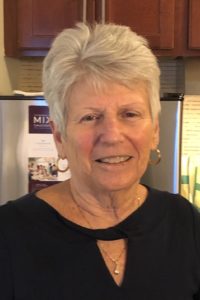
My maternal grandmother, Judy Corey, has lived in Raleigh for over thirty years. Like many others during the pandemic, she adapted to the “new normal” as a necessity.
“I wear a mask when I go to the stores. I don’t go shopping like I used to. I just go to the grocery store. I try to avoid crowds. I haven’t been to a restaurant to eat inside for eight months,” Corey said (via phone interview).
Corey lives alone and has for many years. To offset this, she spent a lot of time with friends and family. Before her life came to a standstill, she often met with a group of friends for dinner or a game night. She traveled a lot and attended family gatherings.
During the pandemic, she found new ways to socialize safely, but it is not the same. “I get together with two trusted friends every Saturday. My daughter has me over for dinner once a week. Nothing is easy about this whole thing. At all. I can’t get hugs from anyone. Even my friends, we used to hug each other… we don’t do that anymore. I don’t hug my kids or my grandkids,” Corey said.
Throughout the past few months, as restrictions relaxed, she began engaging in more activities (with many precautions). Corey is an avid tennis player, so she was relieved when her tennis club reopened in May. She is thankful for the opportunity to stay active even though players social distance on the court and “tap rackets instead of shaking hands.”
Despite her best attempts to stay busy, sometimes she feels lonely. “Being alone, whereas other couples have each other, is even harder. It’s a different sort of being alone. I don’t mind being alone, but this alone is worse,” Corey said.
Gerald Blake, 77 years old

Blake has lived in Raleigh for over 35 years. While he lives at home, Blake’s wife lives in a nursing home, making communication during the pandemic difficult.
The biggest hardship Blake faces is the lack of direct contact with his wife. “I don’t go out as much as I used to, and my wife’s in a nursing home, so I can’t visit her, not live anyway. The most challenging for me is… [not] being able to see or talk to my spouse. Being alone,” said Blake (via phone interview).
The pandemic affected his habits and other aspects of his daily life. He tries to stay active if only for something to do. “I just don’t go out in crowds anymore. I’ve done more walking and work in the yard more than I used to just to get outside,” Blake said.
A big consolation for Blake is the concern others have shown; people reaching out and staying in contact with him. “I’ve had a lot of people come by and bring food and they’ve invited me out to eat. Of course we’ve been social distancing, some with masks. A lot of phone calls and cards in the mail. A lot of people are thinking about me so that’s good to know,” said Blake.
Jane Finley, 75 years old
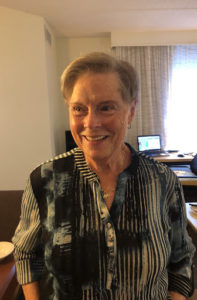
Due to a former career in health care, Finley has a different perspective. Having studied viruses and how to test for them, she is more worried about the unknown ramifications of COVID-19. “I’m very concerned because I know it can cause some very serious health conditions, and more concerned because we don’t know very much about it or how we respond to it,” said Finley (via phone interview).
She feels confident that the nation will overcome the worst of the virus but does not believe a vaccine is quick in coming. “Some of the news is saying that they’re going to have a vaccine and everything is going to be rosy in November, but I don’t think that. I’ve been involved in HIV in the 1980s. That was another virus they didn’t know much about, but people were dying. There’s still no vaccine for that,” said Finley.
Finley came into contact with people exposed to the virus several times. “My son-in-law got the virus. When he started showing symptoms I was with his wife, my daughter. From there, I had to isolate. There was another incident where a friend got Covid, and I had dinner with her,” said Finley.
She lives in constant dread of getting the virus. “I’m worried and concerned every morning I have the sniffles and my first thought is: ‘Is this Covid? Do I have it?’,” Finley said.
While she takes many precautions, wearing masks and staying out of crowds, Finley stays in contact with her friends. “I have a cohort of about four people, and we gather in groups once a week (three of us at a time) and sit down and have a chat. I think the socialization is still there. You just have to look for it,” Finley said.
Despite her concerns, Finley is optimistic about the future. She believes that though it may take a few years, the nation will overcome the worst of the virus.
June, 75 years old
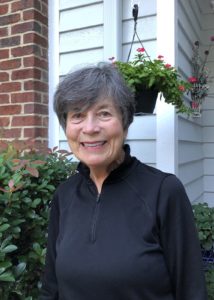
June has lived in Raleigh with her husband since 1991. She takes the virus very seriously, especially since she had it. “It was very mild… I was very blessed. I’ve had it, so I am concerned about it. I’m not obsessed with it, but it is a concern. But then again, a lot of things are,” said June (via phone interview).
She believes that it is extremely important to be conscientious during this time. “I’m pretty sure I got it eating inside a restaurant. I contacted everyone I had been in contact with. I contacted my doctors. It’s important to be responsible. It can hit anywhere. You can be as careful as you can be and pick it up,” said June.
She quarantined longer than the recommended fourteen days because she believes “you have to take stock of how you feel.” “I stayed in for 21 days, since I have an immune disorder,” said June.
A big frustration for June is the lack of reliable information about the virus. “There’s been a lot of misinformation about the symptoms. Something new comes out every day, it’s hard to know what to believe,” said June.
Because of the pandemic, almost everything in her life changed. Activities she used to attend like bridge or book club no longer meet in person. She cannot go to church, travel, or see a movie like she used to.
June’s greatest wish is for everything to be normal again. “It would be nice to have a vaccine so that we can manage this. To have our freedom back, without all these restrictions.”
Despite the many detrimental effects of the pandemic, June appreciates the increased contact with people living far away. She has regular Zoom and phone calls to communicate with people she cannot meet in person, allowing her to connect more with people she does not usually see.
“I feel like the future is uncertain right now. But my hopes for the future and for my grandaughters and the youngest in my family… I’ve had a good life, and I hope that their life is as good as mine has been,” June said.
Carol Kaelin, 75 years old
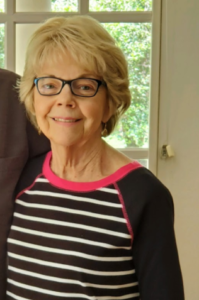
My grandmother, Carol Kaelin, has lived in Raleigh with her husband, Mike Kaelin, for thirty-five years. She has several underlying conditions that put her at risk. Since the start of the pandemic, she exercised the utmost caution, rarely leaving her house in fear of being exposed.
“I am very concerned,” Kaelin said. “I am at high risk so I have to be careful. I can’t go anywhere that there is a crowd. I can’t visit friends and I spend more time at home.”
In the first few months of the pandemic, she experienced even more restrictions. Luckily, she and her husband had a lot of support. “In the early stages of the pandemic, we couldn’t go out at all. So our sons did our grocery shopping, and any other thing we may need they did for us,” Kaelin said.
Kaelin is extremely family oriented. She loves to host family get togethers throughout the year and frequently stopped by for dinner and conversation. So naturally, her biggest heartache during Covid-19 is the isolation from her kids and grandkids. Her greatest desire is to once again experience physical contact with loved ones.
“I wish that I could hug my kids and grandkids. To me, that is very important. I’m very close to them all. I always hugged them when I saw them and now I can’t even get close to them,” Kaelin said.
Kaelin realizes that a vaccine may not be available for at least six months but is hopeful that life will get back to normal eventually.
Chris Simpson, 68 years old
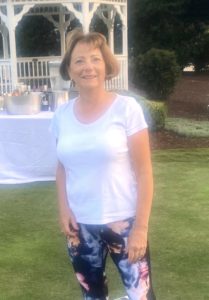
Simpson moved to Raleigh in 1971; she lives with her husband. She is very careful and adheres to recommended guidelines and precautions. “I feel people need to follow the CDC practices. I don’t have any underlying conditions but I still need to be cautious. I follow what I’m supposed to do,” said Simpson (via phone interview).
She and her husband love to travel to see people they know that live in other countries. Before the pandemic, they planned for trips to Canada and overseas during spring and summer. “We had many trips, we traveled a lot… these people we only see like once a year so being unable to see them for another year is a sad thought,” said Simpson.
She tries to stay in touch with friends and family and get outside as often as possible. “Keeping contact is important, just letting people know what you’ve been up to. Also, I play golf, which is a good hobby. It’s nice to be able to be outside and have contact with friends and family,” said Simpson.
“I wish there was a more positive outlook on the pandemic. I’ve gotten to the point where I don’t like to watch the news anymore. There’s so much negativity. It’s disheartening,” said Simpson.
She feels that the pandemic instilled a sense of wariness in people when they meet someone new. That everyone is slightly suspicious in a first meeting, wondering where that person’s been.
“I think this too will pass. The world has had pandemics. I think it’s going to affect how society and humans react with one another. Especially new people. I think things will come back but I have a feeling it’s going to take longer than I would like,” said Simpson.
Marianna, 86 years old
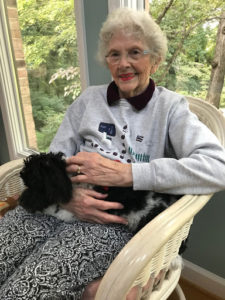
Marianna has lived in Raleigh for 50 years.
“I’m very concerned. I’m taking every possible precaution I can. I’m looking forward to a vaccine,” said Marianna (via phone interview).
“I plan my shopping trips in the morning, when fewer people are in stores. As long as the weather is nice, I can sit out and get some fresh air, which is nice. I haven’t gone out to restaurants. I haven’t been going out with my two other friends for lunch. We used to go out every few weeks and we just talk on the telephone now. We all miss that,” said Marianna.
Marianna’s daughter regularly visits and brings food, providing much needed comfort. “It makes the time much more pleasant and helps to keep the family together during this time,” said Marianna.
“I feel very positive. We have to keep an optimistic look on life cause if you don’t, things fall apart. We have to keep looking forward,” said Marianna.
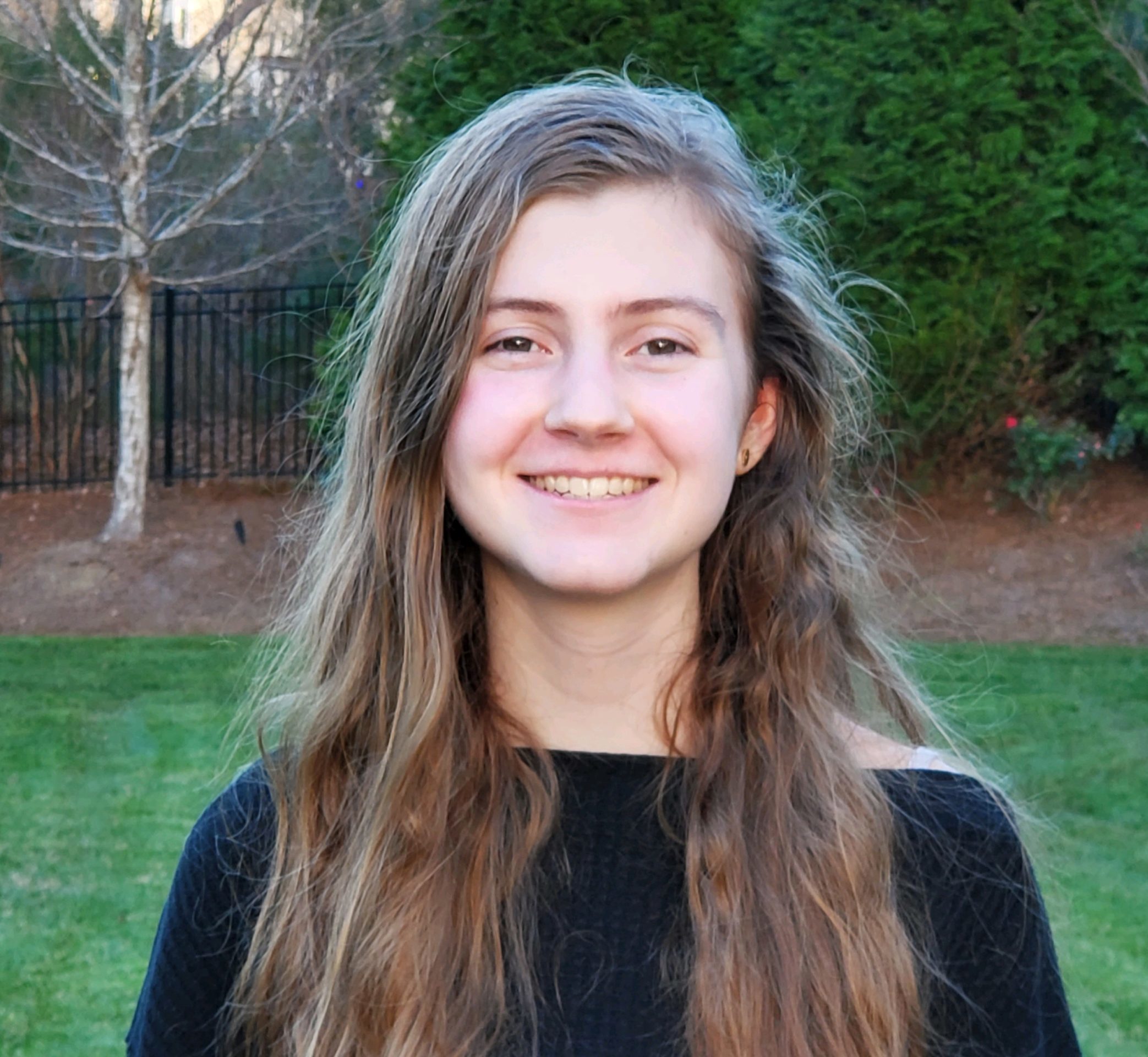
Hi! My name is Sydney and I am a staff writer for The Mycenaean. I am also a member of Key Club and Co-President of the Food Club Bank. I’m the last of six Kaelin family members to go through Leesville.
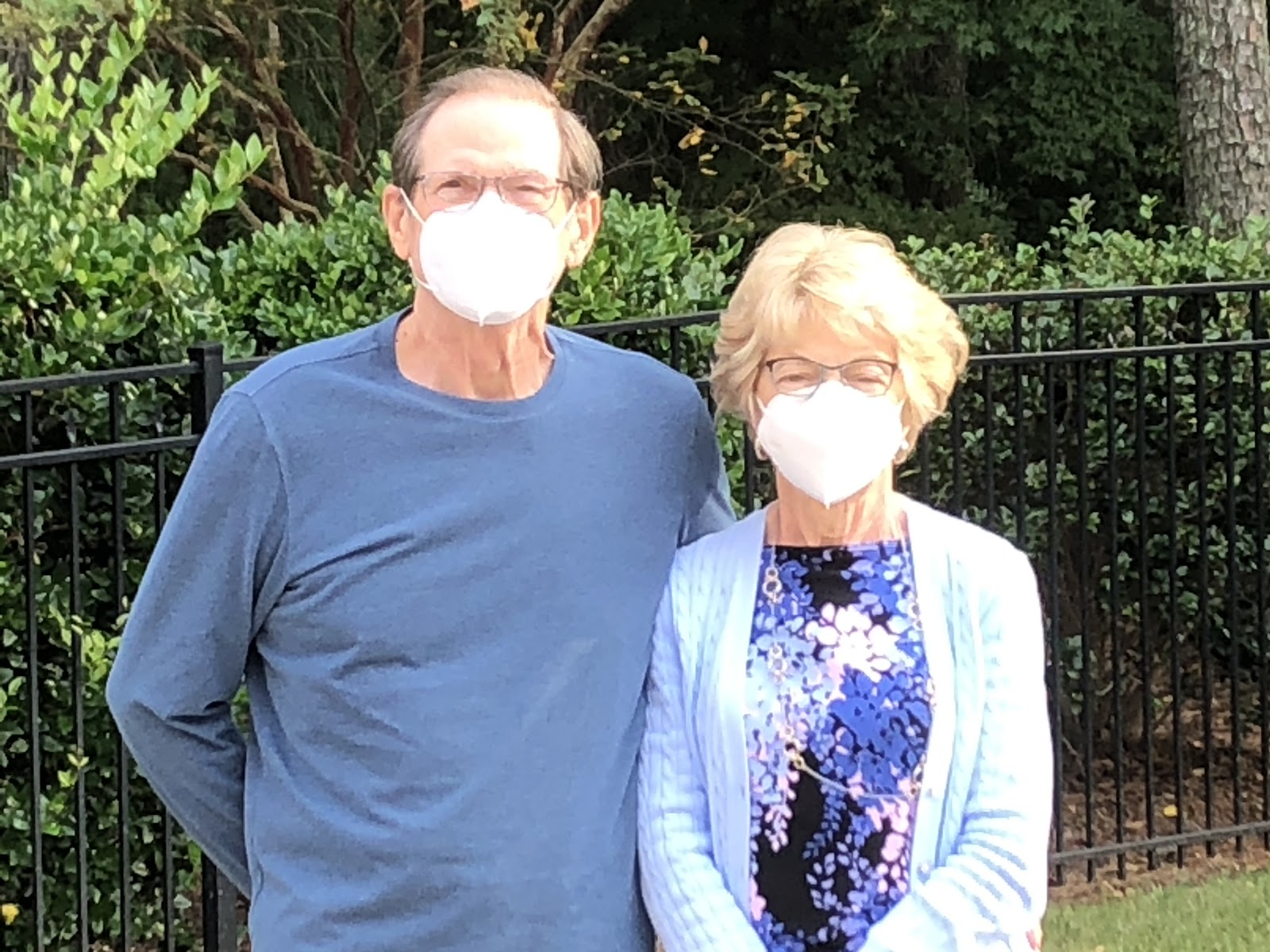
Leave a Reply